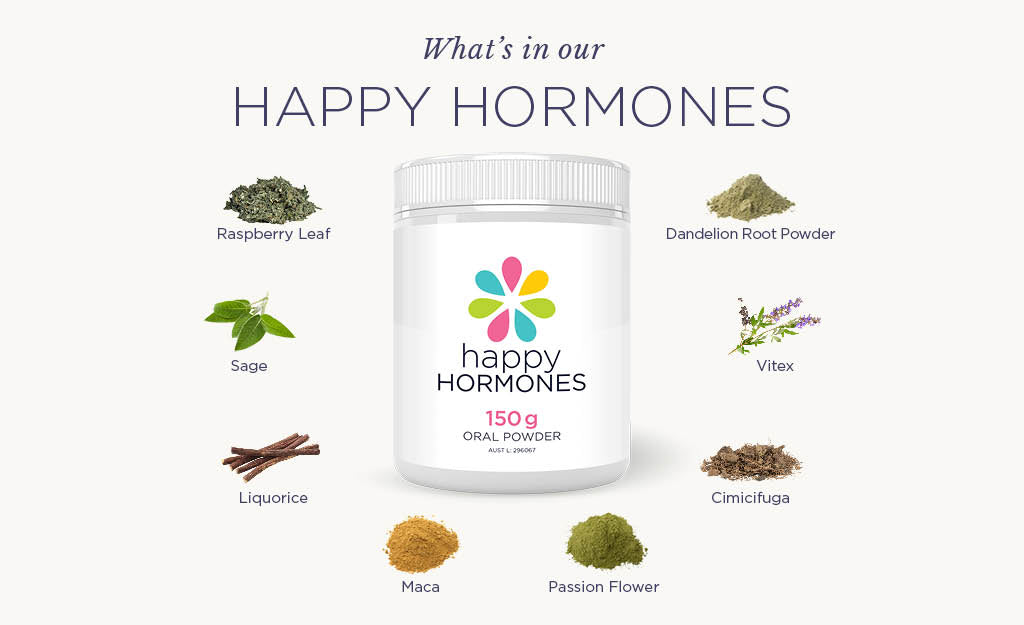The first question I get asked most often is, "Should I get my hormone levels tested?"
Understandably, women want to know what their hormonal levels are because they might be suffering from a range of widespread & diffuse symptoms, that are often difficult to link to one particular condition.
Hormonal imbalances are notoriously challenging to diagnose. For example, it often takes an average of 8 doctors to diagnose endometriosis, despite the fact that it affects up to 20% of reproductive-age women.
When it comes to the mental and emotional symptoms associated with hormonal imbalances the cause is fluctuations of hormone levels, and not hormone levels. This makes it extremely hard to diagnose.
Basically, there are three main ways to get a diagnosis, separate from a physical examination or procedure such as ultrasound or laparoscopy. These are:
- blood hormone levels
- saliva hormone levels
- symptom profiling
Usually, it takes a combination of all these methods, to accurately diagnose a condition or syndrome.
Hormone Blood Testing
Let's first look at hormone blood testing. This is the first point of reference your GP will often refer to, and for certain things, such as menopause and peri-menopause, it can be indicative of the process your body is going through. Typically the tests ordered are:
- Oestrogen
- Progesterone
- Luteinizing hormone
- Follicle stimulating hormone
- Testosterone
- Cortisol
- DHEA
- Prolactin levels may be measured
- In the case of PCOS, blood sugar levels will also be tested.
Now, the major drawback of blood hormone testing, and to an extent with saliva hormone testing, is that hormones are in a constant state of flux.
5 reasons why a blood test may not be the best indicator
1. There is no baseline. Hormones change hourly, daily, monthly, and even seasonally, and are affected by a range of cycles within the body and outside the body - even the moon and other women.
For example, women will often sync menstrually when they spend a lot of time together; whether a woman is in love or not, will change fertility and hormone levels; whether a woman is training for an exercise event, or
preparing for a large project at work, it will change her hormone levels
All of these things (and many more) will change a woman's hormones levels:
- If she is stressed or on holidays
- If she is eating well or bingeing on sugar
- If she is working a night shift or day shift
- If she has food allergies or not
- If her liver is metabolising hormones well
- If her digestion is excreting hormones efficiently
- If she is drinking alcohol or not
- If she is sleeping well or not
- If she is sexually active or not
2. What is normal for one woman may not be typical for another. Each woman has her own set of ideals based on her age, history, and even genetic background.
3. There are many causes of hormonal imbalances and conditions. Looking at just blood hormone levels only shows a small picture of the causative factors.
4. Hormonal symptoms are often caused by fluctuations, not levels. Blood tests are checking levels and not the movement of hormone levels.
5. Our understanding of the causes of hormonal imbalances and conditions is limited. The endocrine system is extremely complex. To pin a diagnosis based on blood levels based on an incomplete understanding of the mechanisms will result in incorrect diagnosis of what is actually occurring.
One size does not fit all and one size does not even fit one woman! What is normal for one person is not normal for another. So you get the idea...you can watch this video to better understand why blood tests may not be the best option.
Saliva Hormone Profiling
Saliva hormone testing has taken an element of this away, by taking daily or every other day testing, along with time-of-day samples to measure hormone levels.
This gives a better reference range against the time of the month and the time of day, as well as the capacity to check hormone ratios. This can be more accurate, rather than just checking against ‘normal’ and ‘abnormal’ hormone levels.
Typically, saliva hormone testing is more expensive and obviously more time-consuming to get the samples taken.

Hormone Symptom Profiling
Finally, hormone symptom profiling - which is our preferred method of screening for hormonal imbalances.
Obviously, it doesn't replace physical evidence of hormonal tissue changes in the body, such as fibroids or endometrial overgrowth. However, as an initial point of screening, symptom profiling gives a better guide to the type of hormonal imbalance - and more importantly the severity of the imbalance.
When a wide range of hormonally-related symptoms is analysed, then a pattern starts to emerge. And for women to see that the wide range of symptoms they are suffering from are hormonally linked, it can be the confirmation they were looking for, to start a treatment program.
Often, many seemingly unrelated symptoms can be grouped together to indicate the imbalance. Polycystic ovarian syndrome is a good example of how symptoms can link a condition together.
Symptom profiling is also an excellent way to get a measurement of mental and emotional symptoms - and the severity of these symptoms, because there are no physical testing methods that can demonstrate whether a woman is clinically depressed, or whether they're suffering from depression linked to hormonal fluctuations.
When mental and emotional symptoms are linked with physical signs of hormonal imbalance and exacerbated premenstrually, then there is a common link which can be used for treatment.
Hormone prescribing
Another important point to make here is that when a certain hormone is found to be either excessive or deficient, the first point of treatment is to replace the deficient hormone - whether it is progesterone, testosterone, DHEA or oestrogen.
As we know, hormones shift literally every hour, so to get the prescription correct is incredibly difficult. And the prescription needs to change daily to recreate the ideal balanced hormonal levels. So it's nearly impossible to be accurate.
When you prescribe a hormone which may be deficient, you are effectively telling the body to stop further production of that hormone. This of course only contributes to the underlying pathology.
In time, a larger endocrine imbalance ensues, due to the fact that every hormone and endocrine gland such as the ovaries, pancreas, adrenals, thymus, thyroid, hypothalamus, pituitary and pineal gland are intimately interconnected.
This is why the thyroid gland is often involved, and so women find it hard to lose weight, they feel fatigued, can't sleep and hormonal changes continue.
Of course, all the mood swings, irritability and emotional outbursts continue to get worse, because these were never really considered as a part of the overall imbalance.

The Solution
This is where we often find women come across Happy Hormones and are desperately looking for a solution to their mismanaged hormonal health.
And so we begin the educational journey towards understanding that it's not actually about your hormone levels. Rather it's about your hormonal control centres, and how you metabolise hormones - not the hormones themselves.

This gives us a starting point; and often the confirmation that the symptoms are linked to hormonal imbalance. Then we produce an individualised report detailing how to make proactive changes to improve your health.
We must state, however, that if there is a physical tissue overgrowth such as fibroids, cysts or endometrial overgrowth, then it must be diagnosed through physical identification for confirmation.
Then finally our 8-Week Program, which explains the dietary and lifestyle changes that need to take place for a long-term solution to start the healing process.










Leave a comment
This site is protected by hCaptcha and the hCaptcha Privacy Policy and Terms of Service apply.